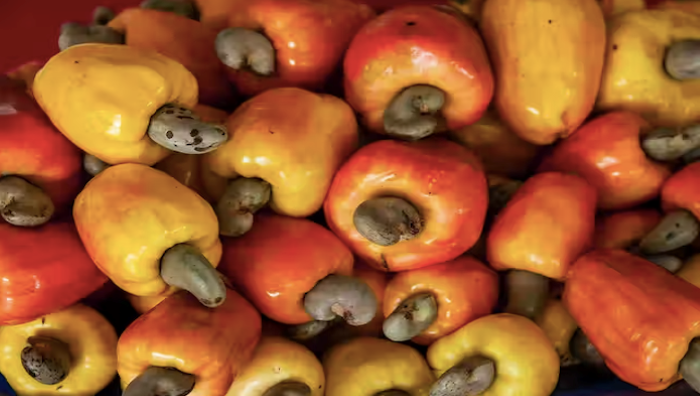Cashew Gold: Imo Rakes in $8.6 Million from Cashew Exports in 2024 — NEPC Eyes Bigger Yields from Value Chain Boost

In a significant nod to Nigeria’s evolving non-oil export portfolio, the Nigerian Export Promotion Council (NEPC) has revealed that Imo State earned an impressive $8.6 million from cashew exports in the 2024 fiscal year—reaffirming the strategic potential of agribusiness to drive rural prosperity and diversify the nation’s revenue base.
Speaking at a stakeholder workshop in Owerri themed “Best Agronomic and Post-Harvest Practices for Cashew Cluster Farmers in Imo State”, NEPC Executive Director, Mrs. Nonye Ayeni—represented by the Imo State Coordinator, Mr. Anthony Ajuruchi—praised the resilience of cashew farmers in the face of harsh operating conditions and market volatility.
From Orchard to Opportunity
The cashew exports success story in Imo is more than a footnote in Nigeria’s agricultural narrative; it is fast becoming a case study in how value-chain optimization, capacity-building, and market access can transform local crops into global commodities.
Ayeni noted that cashew and its derivatives—ranging from wine and liquor to cream, butter, and pharmaceutical-grade products—offer lucrative revenue paths for both smallholder farmers and agritech investors. “We are deliberately enhancing backward integration through the distribution of 1,500 improved seedlings to farmers in Okwudor and Okigwe, building on similar interventions we made in cocoa production two years ago,” she stated.
Value Chain is the New Gold Chain
The NEPC’s intervention is part of a larger strategic push to deepen Nigeria’s presence in the global cashew market, valued at over $9 billion globally, with African countries like Ivory Coast, Benin, and Nigeria playing increasingly dominant roles.
Cashew, often called “grey gold,” is one of the few crops that can be monetized across multiple value chain segments—nuts, apple, shell oil, and even agro-waste byproducts. Yet, the sector in Nigeria has long suffered from post-harvest losses, inconsistent quality, and weak logistics infrastructure. That’s where this NEPC-backed workshop—focused on agronomic best practices and post-harvest handling—becomes a critical game-changer.
Public-Private Synergy Taking Root
Ayeni thanked the Imo State Government for creating an enabling environment, noting that the state’s support for Cashew Exports and production has been pivotal in helping exporters and farmers thrive. This aligns with NEPC’s broader mission to build a resilient, export-ready agricultural ecosystem powered by knowledge, infrastructure, and innovation.
Also speaking at the event, the Executive Director of the Cocoa Research Institute of Nigeria (CRIN), Dr. Patrick Adebola—represented by Dr. Olaniyi Olufemi of CRIN Umuahia—emphasized that CRIN is fully committed to supporting cashew producers with agronomic guidance, improved varieties, and technical training. “Beyond cashew, we are ready to assist farmers cultivating cocoa, kola, coffee, tea, and even black plum,” Olufemi added.
Looking Ahead: From $8.6M to $50M?
With the right investment in processing, packaging, and global market linkage, Imo’s cashew sector has the potential to scale tenfold over the next five years. This would not only boost state IGR but position Nigeria as a refined cashew powerhouse—not just a raw nut supplier.
At BRANDECONOMY, we see this as a clear sign: the future of Nigerian agribusiness lies in export-ready clusters, not just large-scale plantations. With market intelligence, regulatory support, and farmer incentives working in sync, crops like cashew can become the next oil—for the states that are ready to invest in them.
Bottom line?
Cashew is no longer just a snack. It’s a strategic export commodity. And Imo State is cracking the code.
Tools












